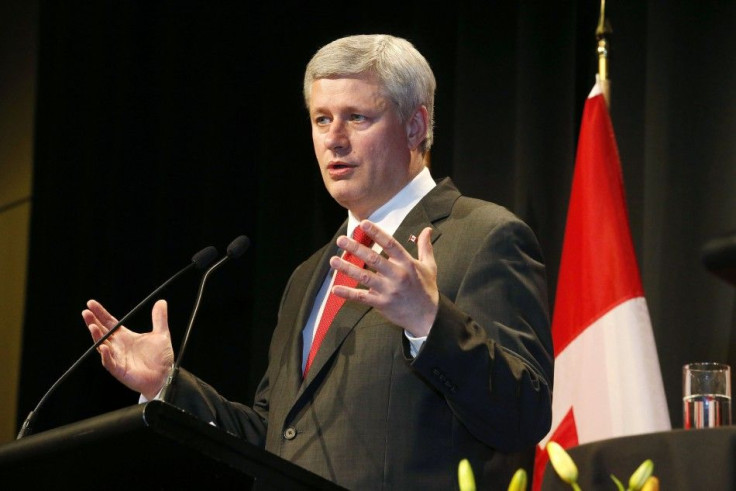Canada elections on Oct 19, PM Harper kick starts campaign

Canada’s Prime Minister Stephen Harper has called a parliamentary election on October 19 and kicked off the 11-week campaign focusing on the sluggish economy. This is the first time Canada is getting a long campaign period as most of the campaigns so far had been just over five weeks.
The Conservatives under Mr Harper are hitting the election trail, amidst opinion polls, indicating a possible rout for Harper's right-of-center party in the House of Commons. Some recent polls have showed Conservatives trailing behind the left-leaning New Democrats. Justin Trudeau’s Liberals are the third force.
Economy plank
The popular mood in favour of a change can leave Mr Harper vulnerable to stay at the mercy of the two center-left opposition parties, in case he loses majority in the House of Commons. But Canada has a history of short lived minority governments whose life span never exceeded more than 18 months.
Mr Harper is seeking a reiteration of trust on his leadership to manage an economy that has been hit by plunging oil prices. Oil is Canada’s chief export commodity. However, Mr Harper is targeting Opposition campaign with the charge that their fiscal policies are "disastrous," including higher spending and incurring more debt.
But the long campaign period can give the Conservatives some reprieve despite the anti-incumbency mood. Conservatives are known for their deep pockets and they can go on the offensive with a wave of attack ads. Mr Harper himself sees the long campaign helpful for voters in properly examining the platforms of various parties, while dismissing the charge that he was trying to outspend rivals. "In terms of the fact we are a better financed political party, a better organized political party and better supported by Canadians, those advantages exist whether we call this campaign or not," Mr Harper said, after launching the election campaign.
The NDP and the Liberals say Canada is going to vote for a change from Mr Harper. The NDP sees the early call as a ploy and would do nothing for the economy. NDP leader Thomas Mulcair alleged that Mr Harper has the worst economic growth record than any prime minister since 1960. "Clearly, Mr. Harper, your plan isn't working ... we will kick-start the economy and get Canadians back to work," he said.
NDP improves position
Meanwhile, the New Democrats surged to a double-digit lead in public support, ahead of other federal parties, according to a new Forum Research poll. It said, four in 10 Canadians it surveyed (39 percent) said they would vote for the NDP if elections were held today. It also showed the fall of Conservatives from neck-and-neck status with the NDP in July last week to just 28 percent of voter support, while the Liberals stood at 25 percent.
It means, in the 338-seat House of Commons, NDP may end up commanding a solid minority of 160 seats, which is just short of 10 short for a majority. The poll results came hours after Prime Minister Stephen Harper kicked off a marathon campaign. It also stated that NDP under Thomas Mulcair’s leadership has given the party a major boost in turning around the electoral fortunes.
(For feedback/comments, contact the writer at feedback@ibtimes.com.au)





















